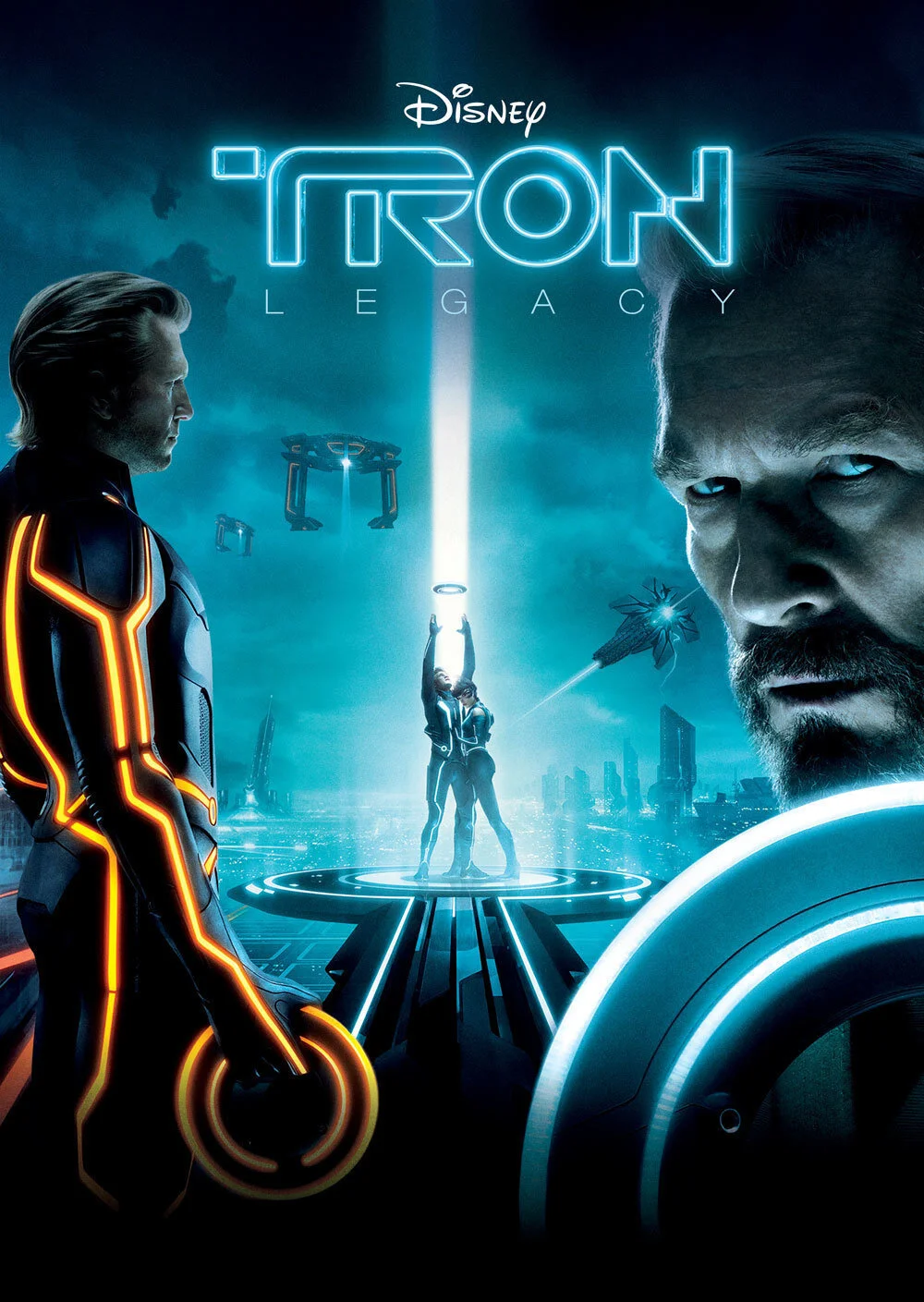Movie Review: “Tron: Legacy”
Everyone knows that it's rare for a sequel to be as good as the original. And for a sequel to exceed the original is almost unheard of (except for maybe "The Empire Strikes Back," but that's another review.)
Don't believe the negative hype about "Tron: Legacy." This is a truly amazing film that brings to fruition the digital world whose edges were only glimpsed in the original, expands what the movie screen can show--and also tells a timeless story about fathers, sons, and, yes, legacies.
The review below contains spoilers. Short review: See this film, but see the original first. If you have Disney+, you’re all set!
***
At its heart, despite the CGI frippery, "Legacy" is a story about the bond between fathers and sons. This is a subject dear to my heart.
Sam Flynn is torn by what he perceives as his father's abandonment of him. He is mentored and guided through childhood and adolescence by the apparently childless Alan, Kevin Flynn's partner (and the creator of the program Tron), but has turned against Encom, the company his father and Alan once helmed and which provides majority stockholder Sam with all his material needs. Finally grown to maturity, but embittered and alone, Sam is initiated by Alan into the secret world Alan and Flynn had established. Rather than enter the portal into the virtual Grid himself, Alan literally turns the keys over to Sam. This is Sam's fight; this is his story.
Kevin Flynn has, in essence, two sons: the program Clu is the elder and stronger son, the product of Flynn's youth, while Sam is the younger and more beloved, the product of Flynn's maturity and a link to his dead wife. It's a tale familiar to anyone who's read Genesis. Clu seeks to destroy Sam and to claim Sam's inheritance--the physical world--as well as that portion bequeathed to him, the digital world of the Grid.
The new Grid as perfected by Clu is a luminous city policed by malevolent guards and flying Recognizers, a corruption of Flynn's utopian vision. In the Grid, humans (Users) are regarded as gods: this is a detail carried forward from the original "Tron" film. And Flynn is revered above all others as the legendary "Creator," although Clu has sought to banish the worship of and belief in Users.
Far from the Grid, Sam finds his father, now an old bearded man expelled by Clu from the world he created and living in exile, as well as Flynn's ward Quorra, a young female program with secrets of her own. Sam is frustrated that Flynn has seemingly given up on finding the portal back to the physical world and lives by the Zen mantra "Remove yourself from the equation." But Flynn also lives with the pain of knowing that his ego has lost him both his physical family and his virtual one. He had created Clu to succeed, to create a perfect system, and Clu had done so, eliminating any sign of dissent without scruple or compassion: the rashness of youth.
Sam's arrival in the Grid reminds Flynn of his duties to both sons. He cannot allow the one to destroy the other, and he can no longer remain silent in the face of Clu's totalitarian plans. In the end, he must literally embrace his responsibility for Clu's reign of terror and must sacrifice himself to allow Sam, the favored son, to survive.
The one essential thing about fathers and sons is this: only one can be ascendant at any given time. Being a good father is about knowing when it's time to step down and allow one's son to rise. Of late, that's a lesson fathers have been loath to learn, and the result is a generation of lost boys who feel they'll never be the men their fathers were.
As much as he would love to leave the grid and reclaim his company, Kevin Flynn knows it's time to go, to trust that his son is the man for the job. He removes himself from the equation.
